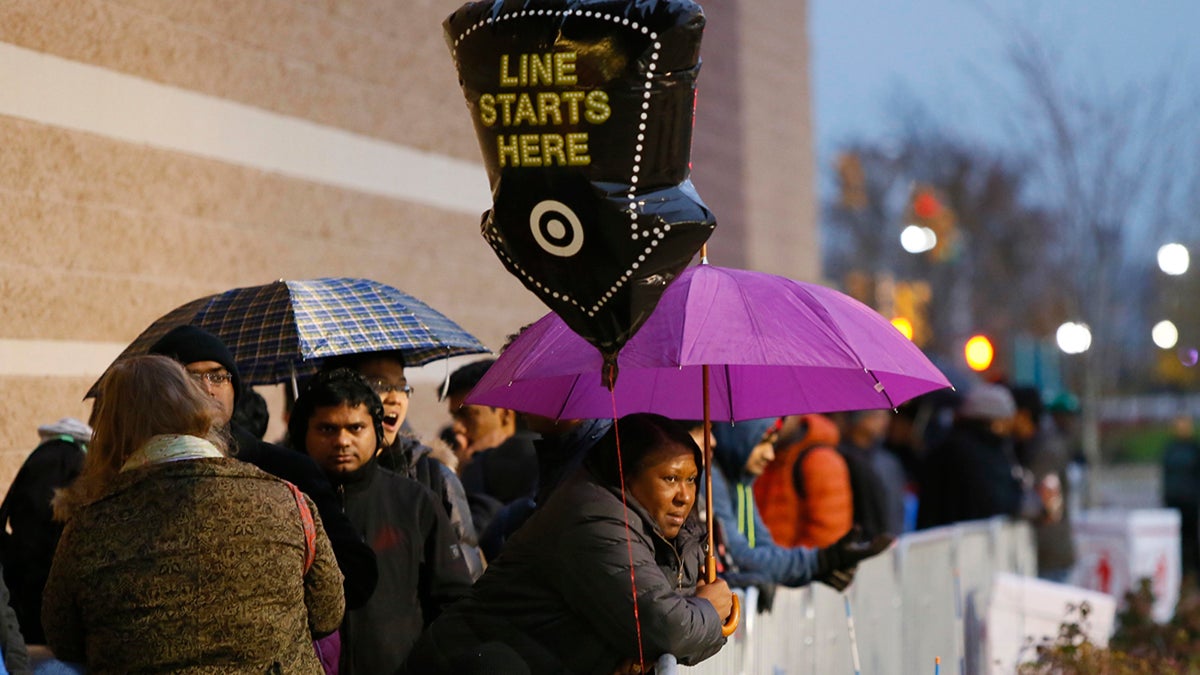Gallup polls Americans on their waistlines and Black Friday lines

Guests wait for Black Friday sales before Target doors open at 6 p.m., Thursday, Nov. 24, 2016, in Jersey City, N.J. (Photo by Noah K. Murray/Invision for Target/AP Images)
NewsWorks Tonight host Dave Heller sits down for his weekly conversation with Gallup’s Frank Newport to talk about trends in U.S. opinion.
The Thanksgiving Holiday weekend is a good time to talk about weight.
The percentage saying they are overweight is down to 37 percent this decade from 41 percent in the 2000s and 44 percent in the 1990s.
Americans in this decade are less likely than in the prior decade to say they want to lose weight, with the average dropping from 59 percent in 2000-2009 to 53 percent in 2010-2016. The percentage of Americans wanting to lose weight is now back to where it was in the 1990s, though still well above the 35 percent average that Gallup measured in the 1950s.
Most of us view ourselves as healthy. Only six percent describe our health as “poor.” This has been remarkably stable over the past 15 years.
Although Black Friday may not have the retail power that it used to as people shop more and more online, it does mark the unofficial start of the holiday shopping season.
What are we looking at this year in terms of retail sales? Gallup’s November measure of U.S. holiday shopping finds Americans expecting to spend an average $752 on Christmas gifts this year. That matches the average for the last seven years, since 2010.
And according to news reports, Trump told the Times he would “rather do the popular vote” and was “never a fan of the Electoral College.”
If the popular vote was the law of the land, Trump would have lost, and lost significantly. Clinton beat Trump by more than Al Gore beat George W. Bush in 2000, by more than Richard Nixon beat Hubert Humphrey in 1968, and by more than John F. Kennedy beat Nixon in 1960.
WHYY is your source for fact-based, in-depth journalism and information. As a nonprofit organization, we rely on financial support from readers like you. Please give today.


